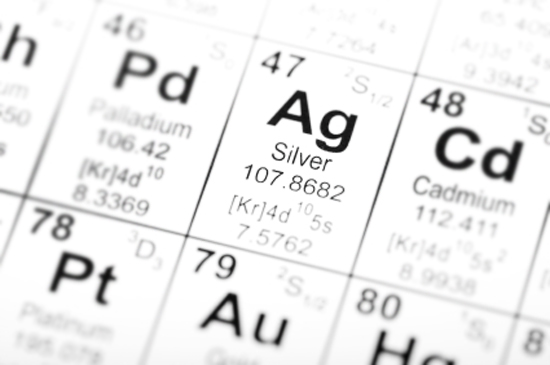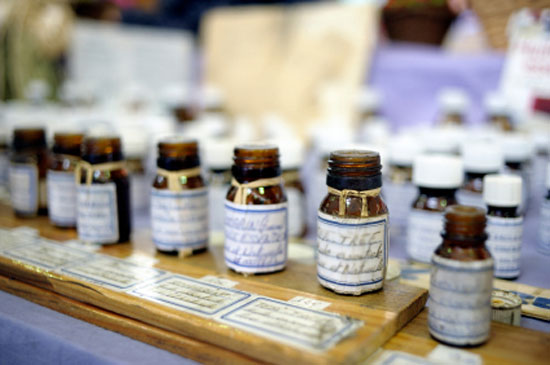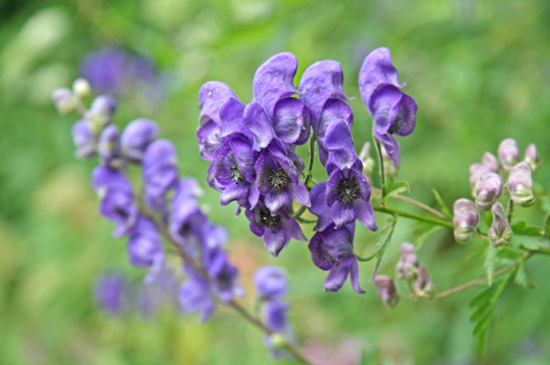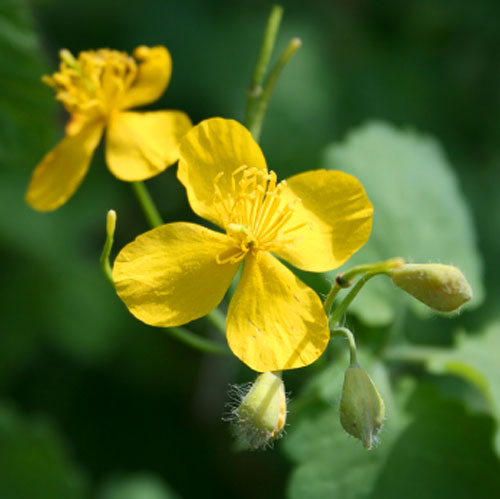Dangerous Supplements

2 min
Not all supplements are good for everyone – some, in fact, can be downright dangerous, especially if taken by the wrong person or in the wrong dosage. Dr. Weil doesn’t recommend any of the following supplements, regardless of what marketing hype accompanies them. Learn more: The Most Dangerous Supplements?
See more photo galleries here.
 Colloidal silver is a solution of silver particles suspended in liquid. It has been promoted as an alternative to antibiotics, a cancer preventive, and a treatment for everything from ear infections to AIDS. These claims are unproven, and I do not recommend taking it. The human body has absolutely no need for silver, and when taken, it can accumulate in the body and lead to a disfiguring skin condition called argyria, which causes bluish-gray skin pigmentation that cannot be reversed. Long-term use of oral silver products has also led to neurological problems, kidney damage, stomach distress, headaches, fatigue and skin irritation.
Colloidal silver is a solution of silver particles suspended in liquid. It has been promoted as an alternative to antibiotics, a cancer preventive, and a treatment for everything from ear infections to AIDS. These claims are unproven, and I do not recommend taking it. The human body has absolutely no need for silver, and when taken, it can accumulate in the body and lead to a disfiguring skin condition called argyria, which causes bluish-gray skin pigmentation that cannot be reversed. Long-term use of oral silver products has also led to neurological problems, kidney damage, stomach distress, headaches, fatigue and skin irritation. Yohimbe (Pausinystalia yohimbe) is an herbal remedy that comes from the bark of an African tree. Before Viagra, drugs containing yohimbine hydrochloride, the active ingredient in yohimbe bark extract, were used to treat erectile dysfunction (ED). However, levels of yohimbine in yohimbe bark extract vary considerably and are often very low. Yohimbe can also have serious side effects including paralysis, fatigue, stomach disorders and even death. I don't recommend it, and harvesting of its bark is driving the yohimbe species to extinction.
Yohimbe (Pausinystalia yohimbe) is an herbal remedy that comes from the bark of an African tree. Before Viagra, drugs containing yohimbine hydrochloride, the active ingredient in yohimbe bark extract, were used to treat erectile dysfunction (ED). However, levels of yohimbine in yohimbe bark extract vary considerably and are often very low. Yohimbe can also have serious side effects including paralysis, fatigue, stomach disorders and even death. I don't recommend it, and harvesting of its bark is driving the yohimbe species to extinction. Aconite (Aconitum napellus) comes from monkshood, one of the most poisonous plants known. Preparations made from this herb are used in very small doses in traditional Chinese medicine and the Ayurvedic tradition to treat pain related to conditions including arthritis, cancer, gout, inflammation and migraine headaches. However, studies of compounds from it have found no evidence to support claims for their usefulness as anesthetics or as treatments for circulatory and neurological conditions. Aconite can cause irregular heartbeat, heart failure, and death, and even in topical form is dangerous. Avoid it.
Aconite (Aconitum napellus) comes from monkshood, one of the most poisonous plants known. Preparations made from this herb are used in very small doses in traditional Chinese medicine and the Ayurvedic tradition to treat pain related to conditions including arthritis, cancer, gout, inflammation and migraine headaches. However, studies of compounds from it have found no evidence to support claims for their usefulness as anesthetics or as treatments for circulatory and neurological conditions. Aconite can cause irregular heartbeat, heart failure, and death, and even in topical form is dangerous. Avoid it. Country Mallow (Sida cordifolia) contains ephedrine, a potentially dangerous stimulant. For this reason, in 2004, the FDA banned the sale of country mallow as well as ephedra (herb) and all products containing ephedrine. Risks include increased blood pressure and stress on the heart, which the FDA concluded would negate any benefits of losing weight. I agree with the FDA and do not recommend it.
Country Mallow (Sida cordifolia) contains ephedrine, a potentially dangerous stimulant. For this reason, in 2004, the FDA banned the sale of country mallow as well as ephedra (herb) and all products containing ephedrine. Risks include increased blood pressure and stress on the heart, which the FDA concluded would negate any benefits of losing weight. I agree with the FDA and do not recommend it. Greater Celandine (Chelidonium majus) is used as a mild sedative, for prevention of gallstones, and to treat ailments as diverse as intestinal and digestive problems, liver disease, and eye irritation. Alkaloids from celandine have been promoted for cancer treatment, but I have seen no scientific evidence that demonstrates its effectiveness. Celandine has been reported to cause hepatitis and may be to blame for unexplained cases of the disease. It also can cause rashes, itching, and serious allergic reactions in some people. Avoid it.
Greater Celandine (Chelidonium majus) is used as a mild sedative, for prevention of gallstones, and to treat ailments as diverse as intestinal and digestive problems, liver disease, and eye irritation. Alkaloids from celandine have been promoted for cancer treatment, but I have seen no scientific evidence that demonstrates its effectiveness. Celandine has been reported to cause hepatitis and may be to blame for unexplained cases of the disease. It also can cause rashes, itching, and serious allergic reactions in some people. Avoid it. Germanium: A trace element used in the production of electronic devices, germanium has been promoted as a treatment for leukemia and other types of cancer as well as asthma, diabetes, hypertension, cardiac insufficiency, Parkinson's disease, neuralgia, chronic fatigue, hepatitis, cirrhosis of the liver and neurosis. Promoters also claim that germanium stimulates the body's production of interferon, a naturally occurring immune system compound and anticancer agent, and boosts the activity of the immune system's natural killer cells that attack invading germs. I have seen no scientific evidence that supports any of these claims and furthermore, it has been linked to kidney and liver damage. I do not recommend germanium.
Germanium: A trace element used in the production of electronic devices, germanium has been promoted as a treatment for leukemia and other types of cancer as well as asthma, diabetes, hypertension, cardiac insufficiency, Parkinson's disease, neuralgia, chronic fatigue, hepatitis, cirrhosis of the liver and neurosis. Promoters also claim that germanium stimulates the body's production of interferon, a naturally occurring immune system compound and anticancer agent, and boosts the activity of the immune system's natural killer cells that attack invading germs. I have seen no scientific evidence that supports any of these claims and furthermore, it has been linked to kidney and liver damage. I do not recommend germanium.









